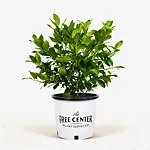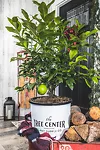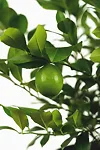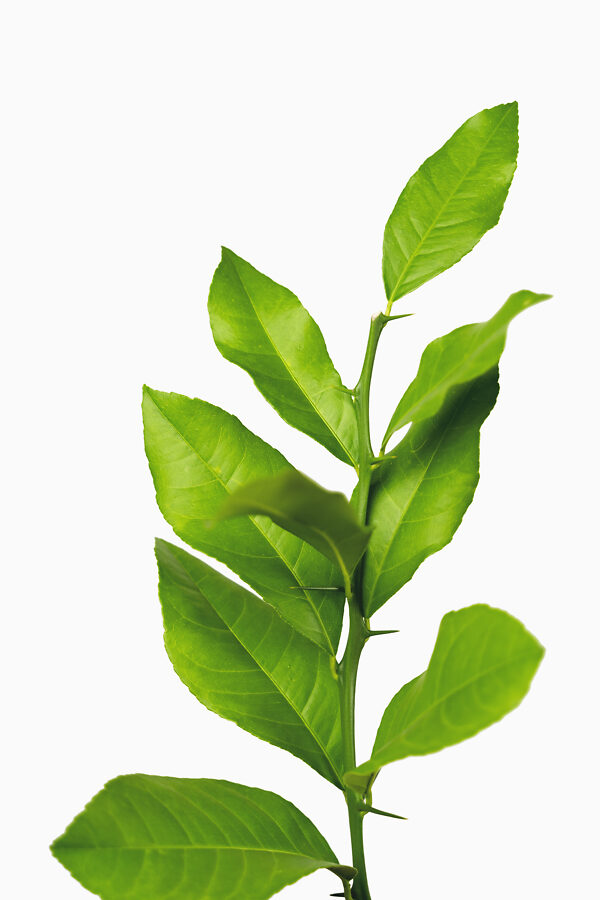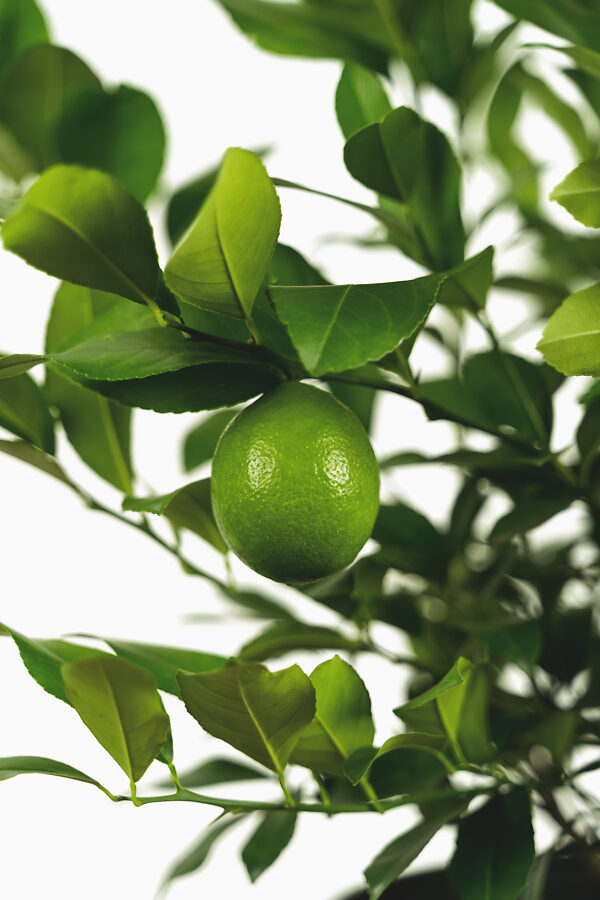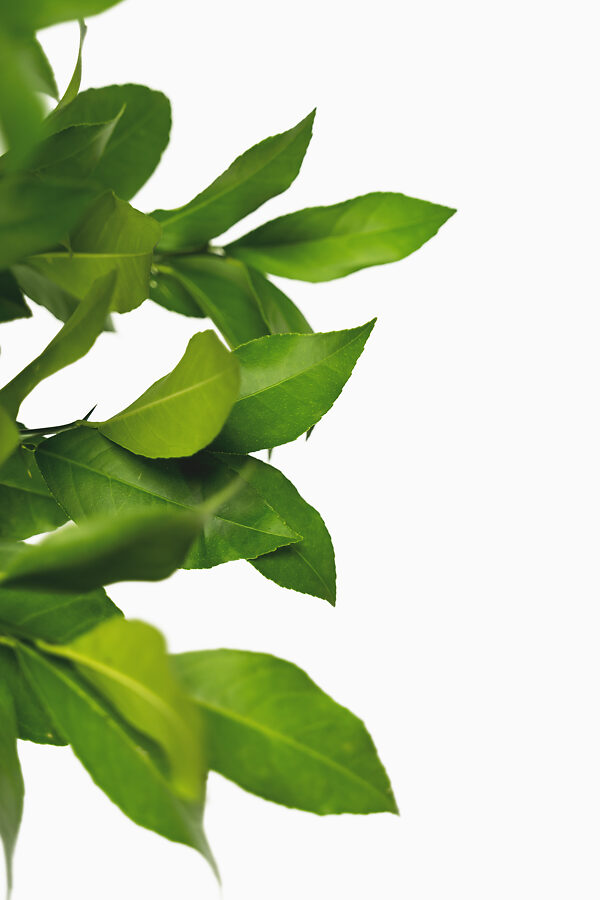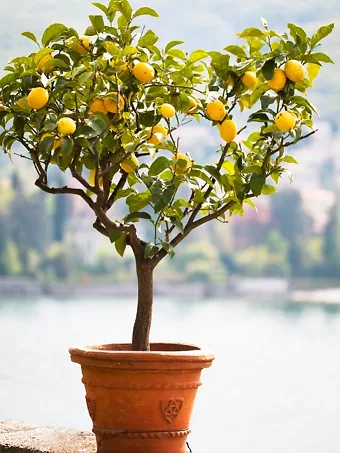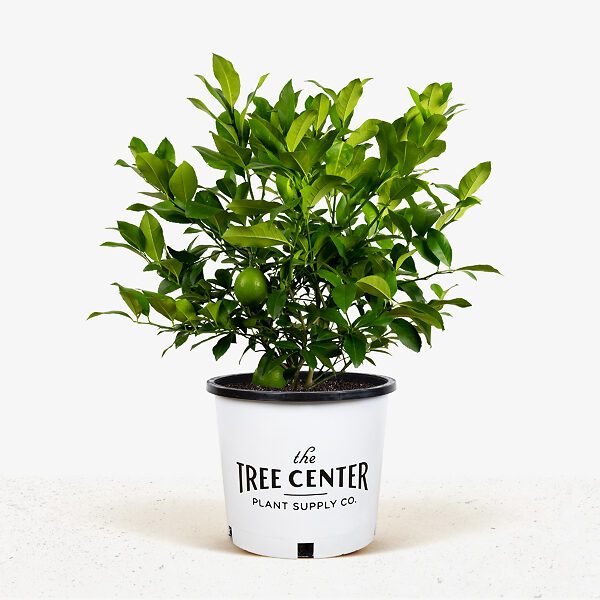
Meyer Lemon Bush
Citrus x meyeriView more from Citrus Trees
Meyer Lemon Bush
Citrus x meyeri
30 day - ARRIVE AND THRIVE™ guaranteeLearn more


Special Features

Botanical Name
Citrus x meyeri
Outdoor Growing zone
9-11
Mature Height
6-10
Mature Width
3-4
Sun needs
Full Sun
The Meyer Lemon Bush is a unique small citrus bush with golden-yellow fruit that is full of lemon juice a little sweeter than from normal lemons. It grows into a small bush around 6 feet tall, and it is the best lemon for growing in a pot, where it will thrive for years. It can also be grown outdoors in frost-free parts of the country. It flowers in spring, and fruit begins to ripen in November, remaining good until March. Grow it in an attractive pot to spend the summer outdoors, bringing it indoors when temperatures begin to approach freezing. It looks perfect on a patio, and it also makes a great gift plant for the holidays or any other special occasion.
- Compact citrus bush ideal for growing in a pot
- Juicy fruits are sweeter than regular lemons
- Easy to grow and produce a crop
- Great tree for a gift to family or friends
- Keep indoors during winter in all but the warmest zones
Grow the Meyer Lemon Bush in as much sun as possible for the biggest crop. It grows outdoors in any well-drained soil, or in a pot in blended soil for cactus, palms or citrus trees. The pot must have a drainage hole and you should use a liquid fertilizer for best results. Some pests are possible, but this tree is easy to grow and needs only a little care. Hand-pollinate flowers if the plant is indoors when it is blooming.
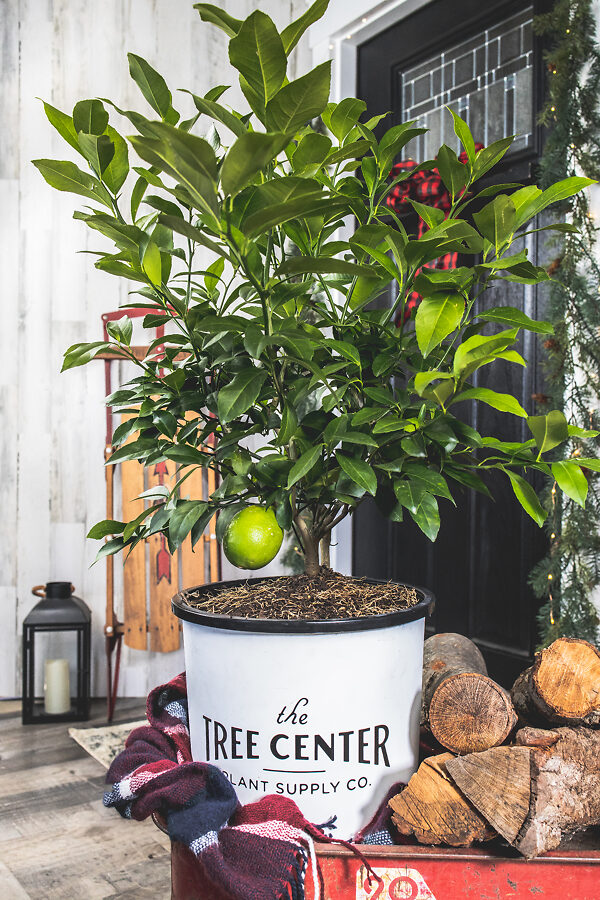
Do you know the amazing Meyer Lemon? It is incredibly juicy, with added sweetness and none of the bitterness of ordinary lemons. Its skin in golden yellow, and when it comes to making lemonade, or delicious lemon desserts and mousses, nothing – nothing at all – beats it. This incredible lemon is very rarely sold in stores, but you can grow your own tree and enjoy this spectacular fruit decorating a beautiful tree or turned into delicious goodness in your kitchen. Top cooks rave about this fruit, and if you know someone who cooks they will love this tree as a thoughtful gift. Plus, this is a smaller bush than other citrus, so it happily lives in a pot for many years. Its foliage is attractive, the scented blossoms are lovely, and the fruit is charming even if you don’t harvest it.
Growing the Meyer Lemon Bush
Size and Appearance
The Meyer Lemon Bush is a small shrubby tree, with branches rising from the base and evergreen foliage. If grown in the ground it will grow 6 to 10 feet tall, and about 4 feet wide, but in a pot it will not be as large, and it can easily be kept about 5 or 6 feet tall. It can be grown as a bush or pruned up into a small tree. The leaves are smooth and oval, 3-4 inches long, with a glossy, rich-green surface. Flowering usually happens in spring, but it can happen at other times too. The flowers form in clusters on older stems, and they are white, 1½ inches across, with slender white petals with some purple on the back. In the center is a prominent cluster of yellow stamens. The flowers have a sweet, ‘orange-blossom’ fragrance. After pollination the flower develops into a tiny green fruit, which grows slowly over summer and begins to ripen in November, when the green fruits turn yellow. The fruit is the size of an average lemon, but rounder, and with a more golden-yellow skin color. The flesh is very juicy, and somewhat sweeter than a typical lemon. Fruit ripens over winter and stays ripe on the tree all the way to March – five months of home-grown lemons.
Using the Meyer Lemon Bush in Your Garden
If you can grow it outdoors all year, the Meyer Lemon Bush makes a beautiful lawn specimen, or planted in shrub beds. For most people it will be a potted tree, and it looks great standing on a terrace or patio. You can even grow it on a balcony without a garden. Place one outside the kitchen door. Use an attractive pot to really show your tree at its best.
Hardiness
The Meyer Lemon Bush will only survive outdoors all year in zones 9, 10 and 11. In a pot it can be grown anywhere in the country. Bring it into a bright place that is not too hot once the night temperatures reach 40 degrees F, and put it back outside when they reach 50 degrees F. You can place it outdoors in spring and fall during the day if the temperature is over 50 degrees F, bringing it back inside for the night.
Sun Exposure and Soil Conditions
This tree should be grown in full sun. Shade will reduce flowering, so indoors it should be directly in front of a sunny window, if possible. It grows outdoors in most well-drained soils, and in a pot – which must have a drain hole – in blended potting soil. Use a well-drained mixture made for cactus, palms or citrus trees, or add 20% perlite to ordinary houseplant soil. Once established this tree is drought resistant, and don’t overwater – only water when the soil has dried a couple of inches down, but water thoroughly, until it flows through the drainage hole. Don’t leave it standing in a saucer of water.
Maintenance and Pruning
Use liquid fertilizer for citrus as directed on the brand you buy. You can remove the tip of new shoots to make your tree more bushy and compact. Remove any weaker shoots to keep it open – the sun needs to penetrate to ripen the fruit. Keep your tree outdoors as much as possible, from spring to fall. Some pests are possible but keeping your tree outdoors in summer will reduce them and you can use soap spray or neem oil for easy control.
If flowers form indoors, or if you don’t think there are any bees around, hand-pollinate, or the young fruit will fall off. Take an artist’s brush, or a clean, soft makeup brush and each day when there are open flowers, dab each flower at random, moving pollen from one to the other. This will give you the best crop of lemons.
History and Origin of the Meyer Lemon Bush
The Meyer Lemon Bush has a fascinating history. Frank Meyer was an ‘agricultural plant explorer’, for the US Department of Agriculture. He was in China from 1905 to 1918 travelling and collecting new plants to introduce into America. In all he collected over 2,000 plants. His most famous is the Meyer Lemon (Citrus x meyeri). He found it being grown by the Chinese as an ornamental pot-plant, and brought some plants back to America, where they were distributed by the USDA. Genetic testing shows that this plant is a cross between a citron, a mandarin orange, and a pomelo. The citron (Citrus medica) is a knobbly fruit that is one of the three parent species of all citrus fruits, and a parent of the lemon. The pomelo (Citrus grandis) is a parent of the grapefruit.
Buying the Meyer Lemon Bush at The Tree Center
The Meyer Lemon Bush is one of our most popular citrus fruits, because it is perfect for pot growing, and its fruit is incredibly useful in the kitchen, without needing a huge harvest. This tree is also popular as a gift to friends and family, so order now, or you will be disappointed seeing the ’out of stock’ sign pop up.
